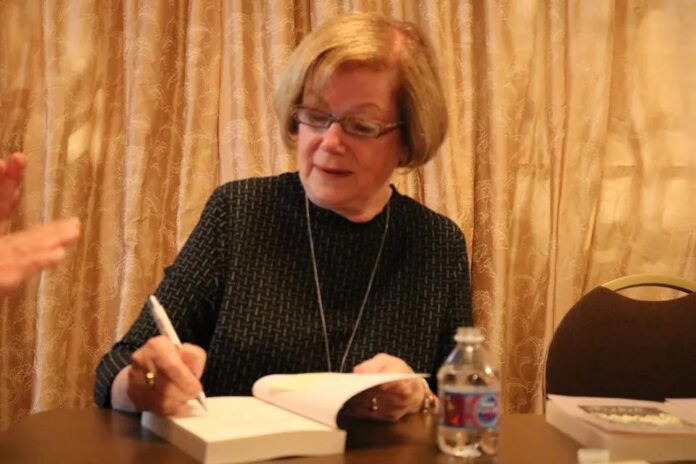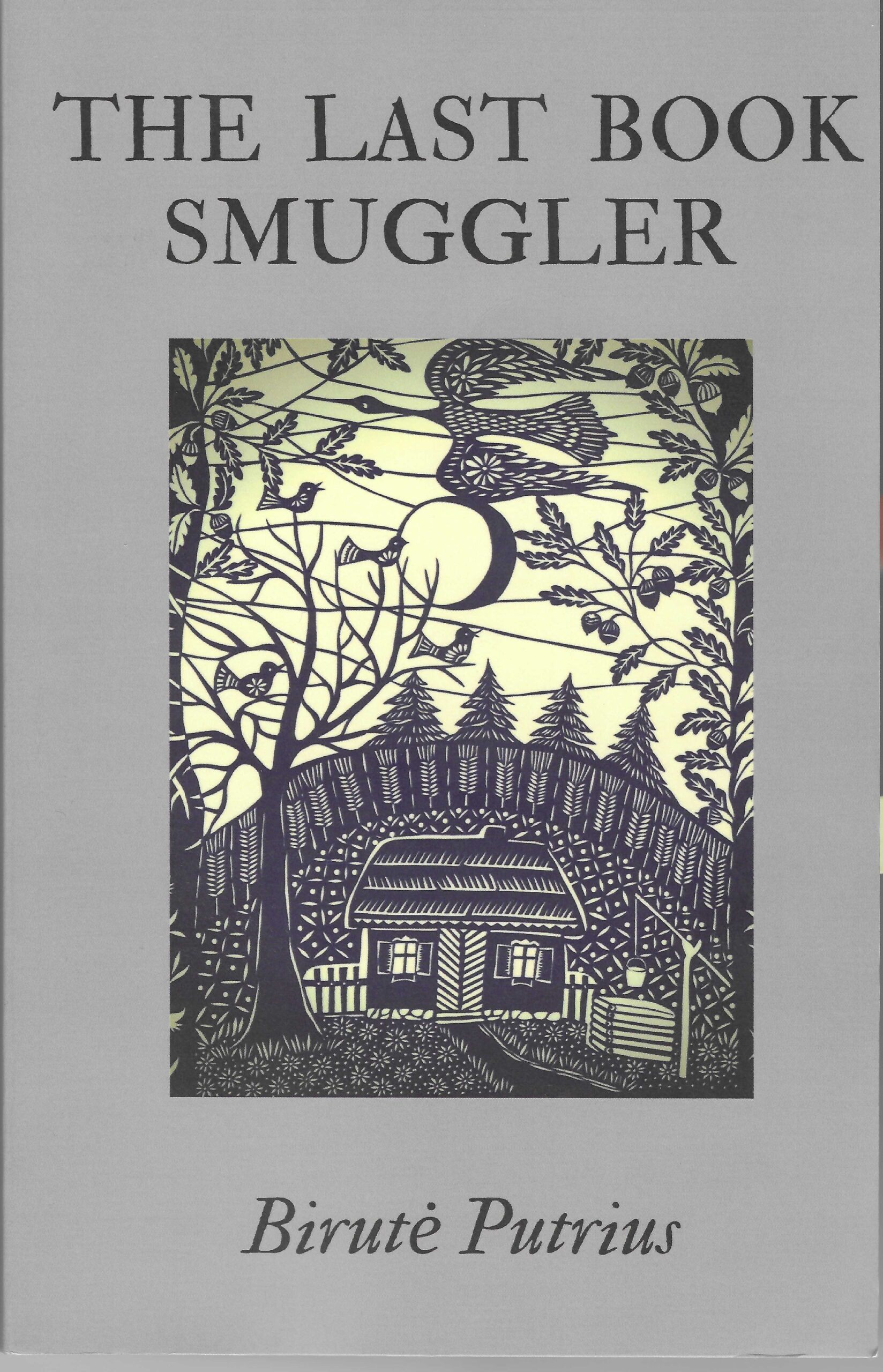
Birutė Putrius is a Lithuanian-American author who was born in a displaced person’s camp in Germany, grew up in Chicago and now lives in California. She has published short stories and poetry in numerous literary journals and anthologies. “Lucy in the Sky” was highlighted by Publisher’s Weekly “for its charming magical realism.” Two of her stories were optioned for short films by Columbia College in Chicago. She was a finalist in the Sol Books contest and has translated poetry and non-fiction. Her first novel, Lost Birds, published in 2015 by Birchwood Press, is the story of Irene Matas and her friends, who arrive as children in Chicago after World War II and try to understand what it means to be American.
 Her second novel, The Last Book Smuggler (Los Angeles, Birchwood Press, 2018), was introduced to a Toronto audience by the author herself during a literary afternoon in late September of this year. It is historical fiction, based on a tumultuous period in the life of the Varnas family in a village called Sapnai, during the first Russian occupation of Lithuania (1795-1918). Intense russification, intended to create “a Lithuania with nothing Lithuanian in it”, led to a ban on all forms of publication, teaching and writing in the native language. Possessing or carrying books was outlawed and punishable by imprisonment or deportation to Siberia.
Her second novel, The Last Book Smuggler (Los Angeles, Birchwood Press, 2018), was introduced to a Toronto audience by the author herself during a literary afternoon in late September of this year. It is historical fiction, based on a tumultuous period in the life of the Varnas family in a village called Sapnai, during the first Russian occupation of Lithuania (1795-1918). Intense russification, intended to create “a Lithuania with nothing Lithuanian in it”, led to a ban on all forms of publication, teaching and writing in the native language. Possessing or carrying books was outlawed and punishable by imprisonment or deportation to Siberia.
The author tells a story of romance and adventure, expertly interlacing various characters and their destinies. Ada and her grandfather Viktoras are the central figures, and are very close. Viktoras feels death approaching, and struggles to escape its clutches every night in his dreams. Reflecting on his life and some of his past decisions, he decide to paint pictures of his earthly journey on a coffin that he has ordered to be built for him. He is also moved to write several letters that he hopes will remedy the outcome of some of his decisions. As a result of Viktoras’ machinations, his daughter Kotryna returns from Russia, and her former love interest Aleksas comes back from America to set up a photography business in the village. Meanwhile, under Viktoras’ guidance his grandson Petras, Ada’s new love interest Jonas, and Tomas, another villager, set out on a final journey to Prussia to bring back Lithuanian books, which the local priest is responsible for distributing. They do not return together, and suspense in the Varnas household continues.
Ada’s fear of being a spinster allows her to fall prey to a destitute nobleman, Modestas, whose gambling debts led to his spying for a Russian official for signs of book smuggling in the village. Modestas attempts to woo her in order to extract information, but she is not attracted to him and falls in love with Jonas, the son of Viktoras’ former smuggling partner. Intrigue and uncertainty ensue – does Aleksas still love Kotryna? Will Modestas find out about the Varnas family’s secret? Will Jonas return from the smuggling mission? – twists and turns flow ever so naturally from the author’s pen and add to the tension.
Aside from weaving a good story, Putrius smoothly introduces a credible chain of historical facts about Lithuania, such as the roots of the language, the failed conversion of Lithuania by Teutonic knights, and the revolt of 1863. Lithuanian folklore and customs appear seamlessly as we discover (or remember) stories of village life, old attitudes towards servants, spinsters and nobles, and yearly festivities such as parading with masks on Shrove Tuesday, decorating with birch branches at Pentecost, and looking for fern blossoms on Midsummer’s night.
Putrius’ poetic leanings emerge in many of her descriptions, for example: “Later that afternoon, the soft wind was tickling the cherry blossoms and ruffling the feathers of the speckled chickens as they pecked at nothing in particular…” Superstitions and symbols also appear like shadows of Lithuania’s pagan past. To know more – you must read the book.
It is rumoured that the novel will be part of a trilogy. But until that time, it would certainly make a wonderful film.
The beautifully evocative cover of the book is not a wood-cut, but a complex work of papercut art by Odeta Bražėnienė. The book is available on Amazon.



























